- Home
- Philip Pullman
The Haunted Storm Page 14
The Haunted Storm Read online
Page 14
God! But they were alike, the pair of them… she was torn, now, torn apart, and her own will was paralysed.
Then Matthew blinked, and looked at her again and smiled briefly, and let go of her shoulder.
“No, go if you want to – do you want to go and look for him?” he said.
“Well, yes – no – I thought you didn’t want me to. I thought you were jealous. Oh, God, I don’t know what I want to do now.”
“Go on, go and find him then. I’ll see you later. I’ve got to sort it out; I was being stupid about it. Go on, or you’ll miss him.”
She turned and went a few paces towards the bridge, and then stopped and ran back; but she said nothing. He kissed her, and then turned around himself and walked away.
He didn’t feel the least regret, and his jealousy had entirely disappeared. What he felt now was, in the main, a disgust with himself. Always words! When something happened, all he did was to jabber questions at it. Nor were they meaningful questions arising out of curiosity but a mindless automatic drivel of words, all designed to reduce it, to keep it at bay. To hell with it.
As he walked along, frowning, he realised that he was hungry; and he went into a cafe and ordered an egg and chips and a cup of tea. That was meaningful. He was hungry; he was going to eat. He thought of his attempt to impress her by shaking the hedge: of all the silly things! Well, he was foolish, but that wasn’t important.
So, what was important? What was the meaning of seeing her lover? Apart from the undeniable power of his physical presence, what was there about him that mattered?
Questions. He banged the table-top angrily.
Questions, and bloody stupidity. There was only one thing about Elizabeth’s lover that was important, and that was the silliest of all. And he’d guessed it from the beginning. Canon Cole had guessed it, Elizabeth had guessed it, and that was why she hadn’t wanted to speak his name. It was Alan, of course, it was his own brother.
Chapter 8
Matthew didn’t see her for the next few days. He did his best to keep Alan out of his mind. It was too much to take in at once; he cursed his weakness, and kept going.
On Saturday, the Parrishes’ other son Robert came home, and in the evening Matthew, tired and more than a little sick of himself, went across to the farm to say hello to him.
Robert Parrish was not unlike Matthew in some ways. Even physically they resembled each other a little; Robert had the same build as Matthew, the same hasty nervous movements, and his hair was black. No one would have taken them for brothers, though, for Robert had the Parrish stolidity in his face. His natural expression was one of gentle worry; and he wore glasses, too, which accentuated it.
They were still sitting round the supper table, talking, when Matthew knocked on the kitchen door and went in. Robert looked around and jumped up enthusiastically, and clapped him on the back.
“Hello, Matthew, you idiot! Are you still sweeping floors?” he said.
Matthew grinned sheepishly at the rest of the family. Peter was looking a bit more cheerful, and smiled back at him. “Come and sit down,” said Mr. Parrish. “Have you had your tea? D’you want a cup?”
“Thanks,” said Matthew, and pulled up another chair.
Mrs. Parrish poured out some tea. “There you are, dear,” she said. “What do you mean, Bob, sweeping floors?”
“That’s what he was doing last time I saw him,” said Robert, “sweeping floors in a hospital, wasn’t it, Matthew?”
“I don’t know,” said Mrs. Parrish; “what you get up to, all sorts of things it is. You mind, Bob, you never know where you’ll end up, my lad.”
“It was only for a month,” said Matthew. “I’m working on the farm now.”
“Some of the time he is,” said Mr. Parrish. “You want to be careful, Bob, Matthew’s got his eye on you. He’s going to be a tax inspector, he told me.”
“Get away,” said Robert.
“No, it’s true,” said Matthew. “I thought of being a policeman, but I’d be able to keep a better check on you as a tax inspector. Where are you working now, anyway?”
“Bedford. It’s my second term now. Long holidays, you see! That’s the thing! Why don’t you go into teaching, Matthew?”
“I don’t know anything,” said Matthew. “What could I teach?”
“What did they teach you at Oxford?” said Peter.
“Nothing at all.”
“Get away with you!” said Mrs. Parrish. “Don’t talk rubbish.”
“Well, they taught me rubbish, then. I’ve forgotten it all now, anyway.”
“You’d get paid more than I do, as a teacher,” said Robert. “You ought to, you know.”
“No; I couldn’t. I don’t know how anyone teaches. I’m too dishonest. I’d tell them all lies and steal the dinner money. How old are they, anyway, your pupils?”
“Primary school. Juniors. No, you stick to sweeping floors, perhaps you’re right. There’s more money in that. But how long are you here for?”
“A couple of months… I don’t know. Whenever I go somewhere, I’m too lazy to move, and I want to stay for ever. Prison would suit me fine.”
“No, you’re only teasing,” said Peter. “He doesn’t mean half what he says, Bob. Your mates at Oxford, now – what are they doing? What sort of jobs do they do?”
“I don’t know,” said Matthew, and laughed. “No! Honestly! I haven’t a clue. I’ve lost touch with all of them. No!” he shrugged. “I’m so amazed that other people know what they’re doing that I haven’t got time to find something to do myself.”
“Well, you be a teacher and you’ll have all the time you need. Three months a year! That’s good enough for me,” said Robert.
Matthew scratched his head. The fellow was an idiot, but he meant well, and Matthew was in the mood tonight for a bit of harmless fooling. God alone knew what Liz could be up to.
They sat around the table talking for half-an-hour or so, and then Mrs. Parrish cleared the dishes away and went out with her husband to do the washing-up. It was about half-past eight, and Matthew was wondering whether or not to go soon and go out for a long walk. It looked like a fine night; he leant back in his chair and gazed out of the window. He could go up on the moors, or simply prowl around the village… He realized that Robert was talking to him.
“D’you fancy a drink, Matthew? Come on, wake up! Come over to the Red Lion for a pint.”
“Yes, okay. I’ll have to run across the way to get some money, though.”
“Don’t bother about trivial things like that. Uncle Robert got paid yesterday. Coming, brother?”
“No, I won’t, thanks. I’m whacked tonight; reckon I’ll go to bed soon.”
“Ah, the life of the soil… tell ‘em we won’t be long. Cheerio.”
“Goodnight, Peter,” said Matthew.
“See you, Matthew.”
They went out of the kitchen door and made their way through the farmyard into the road. The air was warm, and the sky was full of stars. Matthew felt expectant, and somehow tense; maybe it was just that he wasn’t quite at ease with Robert. No, it couldn’t be that; he was confused, that was all.
“Peter’s still upset about that murder business, isn’t he,” he said as they went up the hill into the village.
“Yes, poor lad. Nasty, that was. First I knew about it was in the papers – murder, South End Farm – Christ, I thought, what’s going on?”
“Mmm. Did you notice anything changed in the village? I mean the atmosphere. I get the feeling that everyone’s looking at everyone else, waiting for someone to confess or be arrested or something?
“I dunno. It looked the same to me. You’re too nervous, Matthew, that’s your trouble. You always were. I bet you’re frightened in case they arrest you.”
“Well, I am, since you mention it. No, no, I’m not; I don’t mean that.”
“What are you doing now, though? You haven’t got a job at the moment, have you?”
“No, I’m just
hanging around. Waiting, I suppose.”
“Waiting for the revolution, eh? You’ll have to wait a while for that.”
“The revolution, or the last judgement, I’m not particular. But what are you doing apart from teaching? I mean, what do you do in your spare time? What do you believe in?”
“Believe in? Blimey, nothing, I suppose; I don’t know. I go out; I read quite a bit. I’ve got a girl there; I spend a lot of time with her. That’s what I believe in, I reckon. I don’t think about it much.”
“So no religion? You don’t believe in God?”
“Well, I’m an agnostic. I’m not an atheist. A humanist, really. That’s all there is, isn’t there?”
“Human beings, you mean?”
“Yes… I dunno. It doesn’t worry me, I’m happy; I know that’s not everything, but… I know I ought to try, I mean everyone ought to really, to make other people happy, if they can. I suppose I’ve learned that.”
They walked on a little way in silence. They made no sound at all apart from the noise Robert’s shoes made on the pavement. Matthew was wearing plimsolls, and he revelled in the feeling of lightness they gave him, and in the energy that welled up in him as he felt it. He wanted to run, jump, climb trees, make love; there was something explosive in him that matched the splendid sky, and longed to join it.
“I am a werewolf,” he muttered under his breath.
“What’s that?” said Robert.
“I said I want to be a werewolf. I want to stop being human. No, no; I’m quite willing to be human tonight, as long – as long –”
He stopped, and listened to the hoot of an owl in the darkness to the left of the road.
“– As long as there’s plenty of action, you see! Wine, women, and song!” he went on.
“I don’t know about the women,” said Robert, “but hush now – over towards the recreation ground – can you hear it?”
Sure enough, if he listened carefully Matthew could hear the heavy drumming and the whining guitars of a pop group. “Where’s it coming from?” he said.
“It’s probably the Youth Club. It’s all changed now from what it was when I used to go. They have dances on Saturdays, sometimes. That must be it.”
“Well, that’s it! That’s it! Yes, that’s fine. Let’s go along there, eh? A bit later on when it’s warmed up. How much cash have you got?”
“Oh, I’m loaded – I’ve got about ten pounds on me –”
“Lend me a quid, then, could you? I don’t want to go back and get it. I’m in the mood for being human tonight. Can you lend me a quid? Give us it now, and I’ll buy your drinks in the pub.”
Robert shrugged, and in the lights of the garage across the road Matthew saw him smile. He still looked worried, nevertheless; but he put his hand into his pocket and took out his wallet. He gave a pound to Matthew and put it back.
“Thanks! That’s it! I’ll give it you back in the morning. I’ve got plenty in the house. I saved it up. Will there be plenty of girls at the dance, d’you reckon?”
“Could be. I dunno. They’ll come from Ditton as well, and Eastley, round that way too, I shouldn’t wonder. The group comes from Eastley. There ain’t many girls in the village, not that many, anyway. Well, you know. Here, you know there’s a new vicar. Well, have you seen his daughter?”
“Eh?” Matthew gasped, startled, as if his foot had slipped. But his dare-devil mask stayed firm. “No, no. What’s she like, then?”
“I’ve only seen her once or twice,” said Robert. “She’s all right, you know, she’s good-looking. And she goes…”
“What? What d’you say?” Matthew stumbled along, his mind reeling.
“That’s what I heard, anyway. Well, I dunno, you hear things. Arnold Fox, he’s been with her.”
The image of a coarsely handsome youth with sleek wavy hair came into Matthew’s mind; and, like Canon Cole, he twisted his face as grotesquely as he could in the darkness, grimacing like a madman.
“Good!” he said. “Perhaps we’ll find her tonight. Does she charge much?”
“Oh, come on, I didn’t mean that. He was only boasting, I expect. She wouldn’t do that, I don’t suppose.”
“You’re too willing to think good of people, Bob. I’m going to corrupt you; I’m going to play the devil tonight. God, yes, I am. My head’s starting to go. You didn’t know I was an epileptic, did you? I’m going to have a fit. I’ll have one now in the road if you’re not careful. Shall I do that? Shall I have a fit?”
“Ah, get away, you wouldn’t.”
They came up to the Red Lion and went inside. Robert had spoken lightly, but Matthew noticed with glee that he was looking more anxious than usual. And immediately he felt sorry. Robert was good; he wouldn’t make fun of him. But his head was starting to go, as he put it. Around his temple he felt the warning tension beginning to throb. “I’ll let it come tonight,” he whispered to himself. “And if I keel over, that’s tough.”
There was only one bar in the pub. The saloon was a dingy little room with only a hatch opening through to the bar; but the public bar was large and crowded and noisy. The pub was situated at the corner of the village triangle nearest South End Farm. The recreation ground, and the building that served as a youth club, were down the road to Ditton, on the right.
Matthew stood still for a moment just inside the door of the public bar, getting his bearings; and then he shoved unceremoniously through the press of people and bought two pints of bitter, and took them to where Robert was sitting in the corner.
“Ta,” said Robert. He drank some of the beer. “Anyway, if you were epileptic, you couldn’t just have a fit when you wanted to. It takes them by surprise, doesn’t it?”
“I could fake it,” said Matthew. “No, I wouldn’t really. Where’s that Arnold Fox? Is he here tonight?”
Robert looked around. He looked shy; Matthew guessed that he’d only suggested coming here out of bravado, and not because he went out habitually. “No, I can’t see him,” he said.
Matthew knew three or four of the men there, but only by sight. There were few women, and no girls. He heard a harsh, giggling laugh that he recognised, and searched for the face to fit it. He saw him at the bar with a group of young labourers, jerking up and down from the knees, his hands beating his thighs. His face was completely empty; it was huge, and seemed out of all proportion to his head. Thin sandy hair was greased down flat, away from his forehead, which sloped markedly backwards. His nose was broad and shapeless, his eyes tiny, his mouth loose and wet. But for the freckles all over it there would have been no colour in his face at all, and the features were so lacking in outline as to give the impression that he wore a silk stocking over his head.
“That’s Archer, isn’t it? Isn’t that his name?” he said in an undertone to Robert.
Robert nodded. Archer was nearly a half-wit. He earned his living as a scrap-dealer’s mate; he rode around on the back of the lorry, loading and unloading it with a frantic speed. He was a favourite with the younger men who frequented the pub because he could be relied on to outdo them all in idiocy; and he would do anything at all for a dare or a bet. Matthew strained to hear what they were saying. Archer’s uncontrolled shrieking giggle rose and fell, and he lifted his glass to his mouth, spilling some beer in his excitement. He didn’t notice. One of the others was saying: “Yes, I did, I seen him at it.”
“He wouldn’ do that, course ‘e wouldn’,” said another. “I swear I seen ‘im. In the fuckin’ ditch ‘e were, down on his knees. Over to Eastley it were. He were eatin’ it, eatin’ the fuckin’ frog spawn.”
Archer laughed again and put his glass on the bar, and leant forward to say something; but the sentence trailed off into a neighing, moaning sound and ended in another frenzied bout of laughter.
“What’d it taste like, eh, Arch? What’d it taste like?” said one of the others.
“How’d ‘e know what it fuckin’ tasted like? ‘E weren’t there at all, it were Jim ‘isself doing it,�
�� said an older man.
“You don’t bloody know,” said Jim. “I swear I seen ‘im. You ask ‘im.”
“Go on, Arch, what’d it taste like?”
“Like spunk!” said Archer loudly, and laughed even harder.
Matthew listened intently, trying to ignore the throbbing in his head. He took a deep swig of the beer. He ought to say something to Robert: otherwise he’d lose his balance.
“Good, in Berkshire, is it?” he mumbled inanely.
“What? Where?”
“Where you are – where is it – Bedford.”
“Oh, it’s all right, you know. I like it – are you all right? What’s the matter?”
“I’m turning into a wolf. I want to go and eat frog spawn.”
He shook his head violently, trying to clear it. Robert shook his head too, but in a different way. There was another burst of laughter from the bar.
“ ‘E know that, dun’e, I seen ‘im doin’ that right enough.”
“He ain’t got no pockets in ‘is trousers, just a hole to put his ‘and in. Up on that wagon – I seen it! I seen it! He ‘ad it in ‘is hand, all covered in rust it were, rust and coal-dirt and cobwebs.”
“Is it a big ‘un, Arch?”
“Tell you what ‘e wouldn’ do,” said the older man. “Suck a dog off. That old dog o’ Charlie’s; ‘e wouldn’ suck ‘im off.”
“Oh, no,” said Archer seriously; “no, I wouldn’ do that, no.”
“The dog wouldn’ let ‘im, anyway,” said another man. “ ‘E be used to Charlie doin’ it.”
“I wouldn’ suck my dog off, not for a pound. I know where ‘is prick’s been, see, it’s been up your old woman. I wouldn’ touch it.”
Matthew turned to Robert and grinned broadly. He could hardly focus his eyes. Robert said something that Matthew didn’t catch.

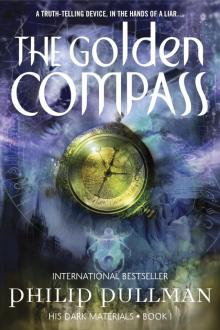 The Golden Compass
The Golden Compass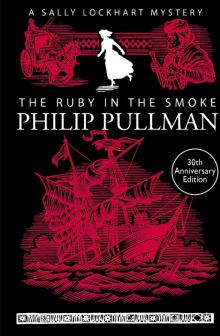 The Ruby in the Smoke
The Ruby in the Smoke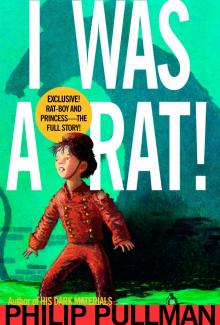 I Was a Rat!
I Was a Rat!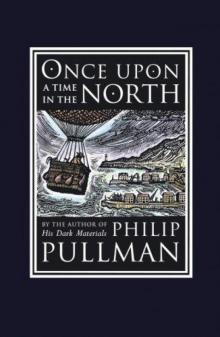 Once Upon a Time in the North
Once Upon a Time in the North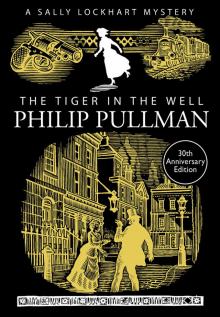 The Tiger in the Well
The Tiger in the Well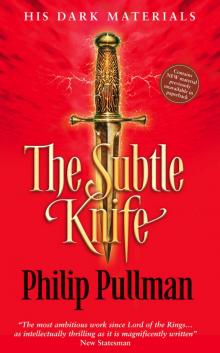 The Subtle Knife
The Subtle Knife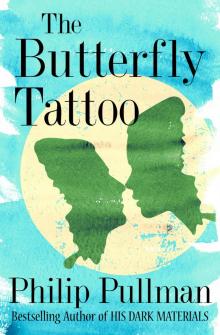 The Butterfly Tattoo
The Butterfly Tattoo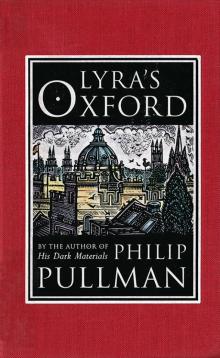 Lyra's Oxford
Lyra's Oxford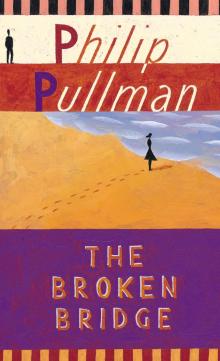 The Broken Bridge
The Broken Bridge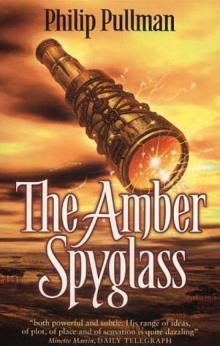 The Amber Spyglass
The Amber Spyglass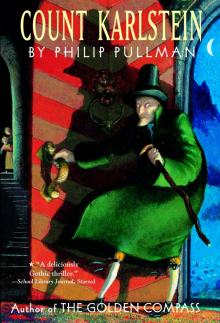 Count Karlstein
Count Karlstein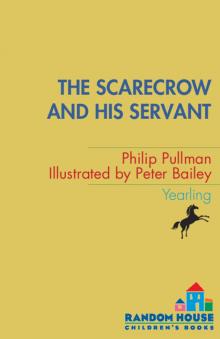 The Scarecrow and His Servant
The Scarecrow and His Servant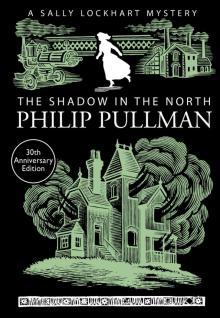 The Shadow in the North
The Shadow in the North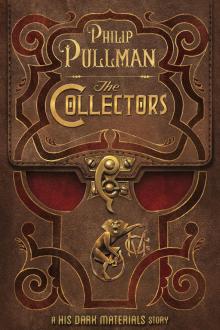 The Collectors
The Collectors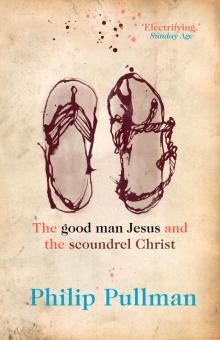 The Good Man Jesus and the Scoundrel Christ
The Good Man Jesus and the Scoundrel Christ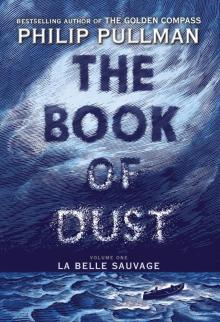 La Belle Sauvage
La Belle Sauvage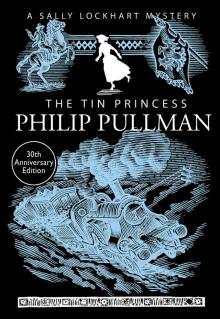 The Tin Princess
The Tin Princess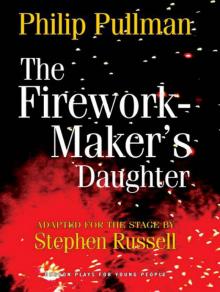 The Firework-Maker's Daughter
The Firework-Maker's Daughter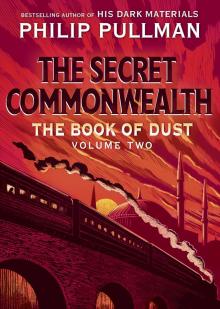 The Book of Dust: The Secret Commonwealth (Book of Dust, Volume 2)
The Book of Dust: The Secret Commonwealth (Book of Dust, Volume 2)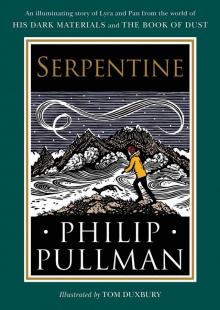 Serpentine
Serpentine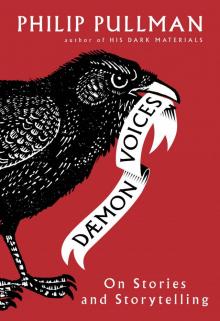 Daemon Voices
Daemon Voices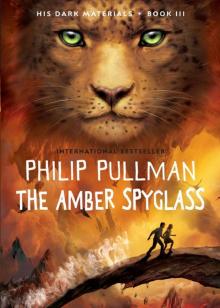 The Amber Spyglass: His Dark Materials
The Amber Spyglass: His Dark Materials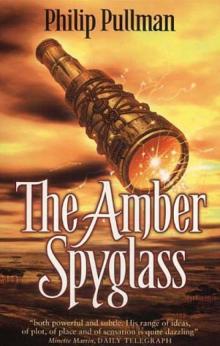 The Amber Spyglass hdm-3
The Amber Spyglass hdm-3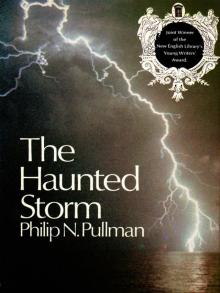 The Haunted Storm
The Haunted Storm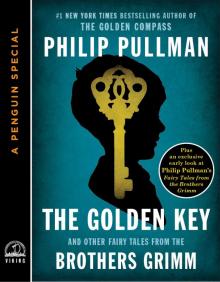 The Golden Key
The Golden Key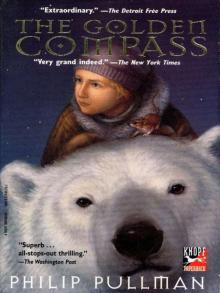 His Dark Materials 01 - The Golden Compass
His Dark Materials 01 - The Golden Compass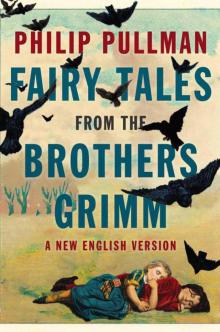 Fairy Tales from the Brothers Grimm: A New English Version
Fairy Tales from the Brothers Grimm: A New English Version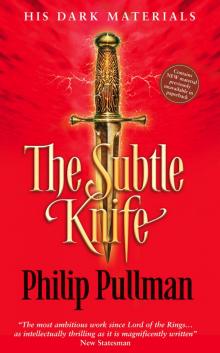 His Dark Materials 02 - The Subtle Knife
His Dark Materials 02 - The Subtle Knife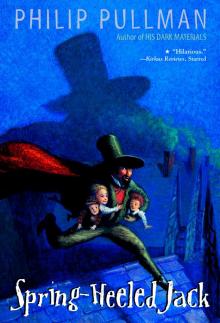 Spring-Heeled Jack
Spring-Heeled Jack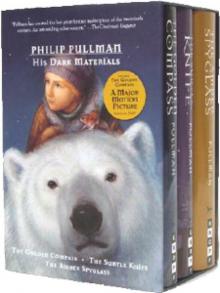 The Golden Compass hdm-1
The Golden Compass hdm-1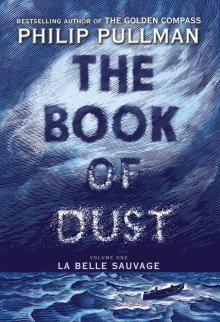 The Book of Dust, Volume 1
The Book of Dust, Volume 1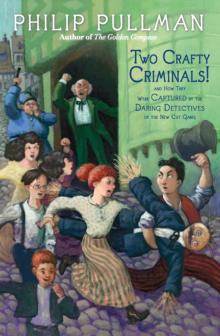 Two Crafty Criminals!
Two Crafty Criminals!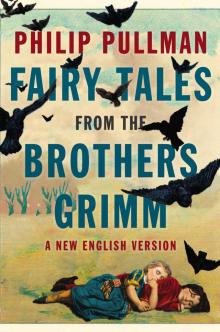 Fairy Tales from the Brothers Grimm
Fairy Tales from the Brothers Grimm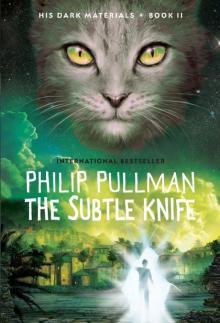 The Subtle Knife: His Dark Materials
The Subtle Knife: His Dark Materials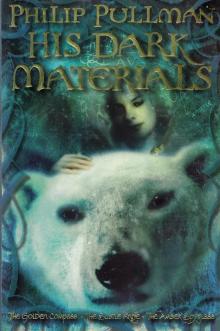 His Dark Materials Omnibus
His Dark Materials Omnibus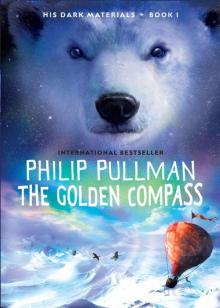 The Golden Compass: His Dark Materials
The Golden Compass: His Dark Materials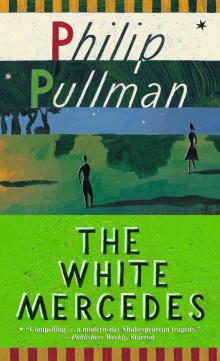 The White Mercedes
The White Mercedes